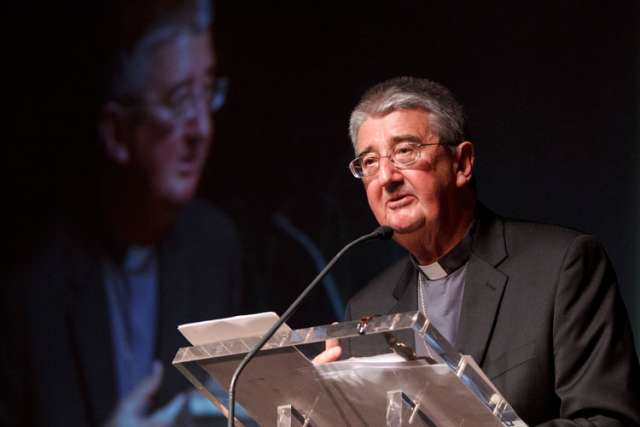Minister for Children Charlie Flanagan said June 4 that the initiative would result in a report to the government on how best to address "a shocking reminder of a darker past in Ireland."
The revelations that nearly 800 babies died in the home for unwed mothers in Tuam run by the Bons Secours nuns in the west of Ireland from 1925 to 1961 and were possibly buried in unmarked graves in a disused septic tank has put renewed focus on such homes. Opposition politicians have called on the government to establish an independent inquiry to establish the truth of the allegations.
Archbishop Diarmuid Martin of Dublin said that "if a public or state inquiry is not established into outstanding issues of concern surrounding the mother-and-baby homes, then it is important that a social history project be undertaken to get an accurate picture of these homes in our country's history."
Martin also said that "where there are reasonable grounds," he supports "excavating what may be unmarked graves" and "the setting up of monuments at any unmarked grave sites with, where possible, the names of those who died."
Following research by local historian Catherine Corless into the operation of the mother-and-baby home that was run by the religious order, it emerged that up to 796 children may have died at the home during its 36 years of operation. Corless has been unable to locate a grave, and locals believe the children are buried in the disused septic tank. However, local police disputed the claim that any human remains buried in the site date from the Irish Potato Famine in the 19th century.
Flanagan said the government is giving "active consideration" to addressing the issue of children who died years ago in the homes.
"I am particularly mindful of the relatives of those involved and of local communities," he said. "There are a number of government departments involved in this process. The cross-departmental initiative underway will examine these matters and report to Government on how they might be addressed."
Archbishop Michael Neary of Tuam was scheduled to meet the Bon Secours sisters to discuss the issue.
"The archbishop will be meeting the sisters to discuss the matter of the memorial and also the holding of a memorial service for those who died there. I understand a suitable plaque is planned to contain the names and dates of death of all the 796 children," an archdiocesan spokesman said.
"There is nothing in our archives about this," the spokesman added. "The home closed in 1961 and all the records were handed over to the county council and the health board, I understand."


